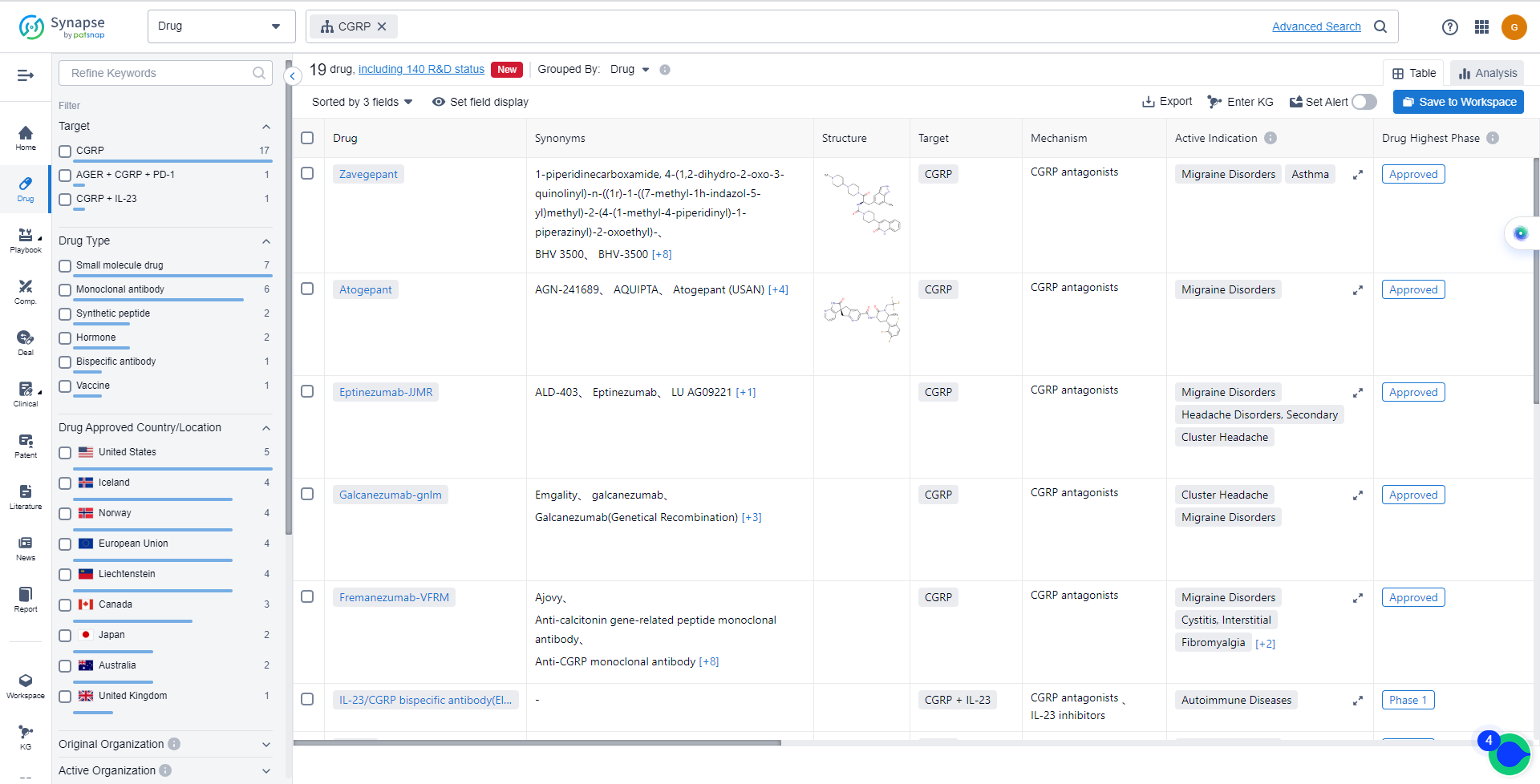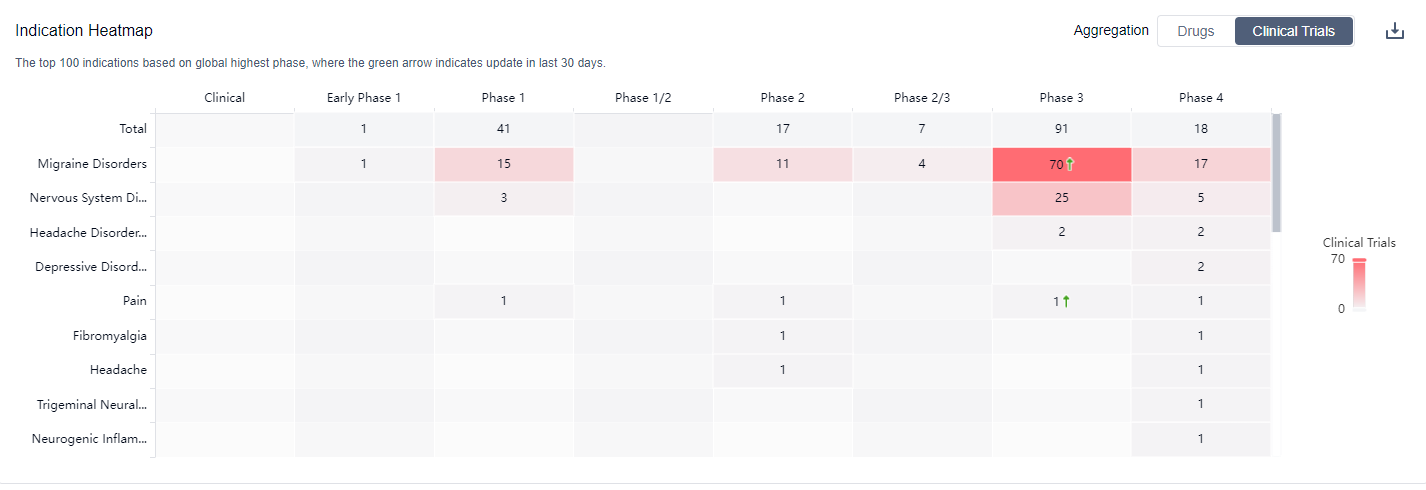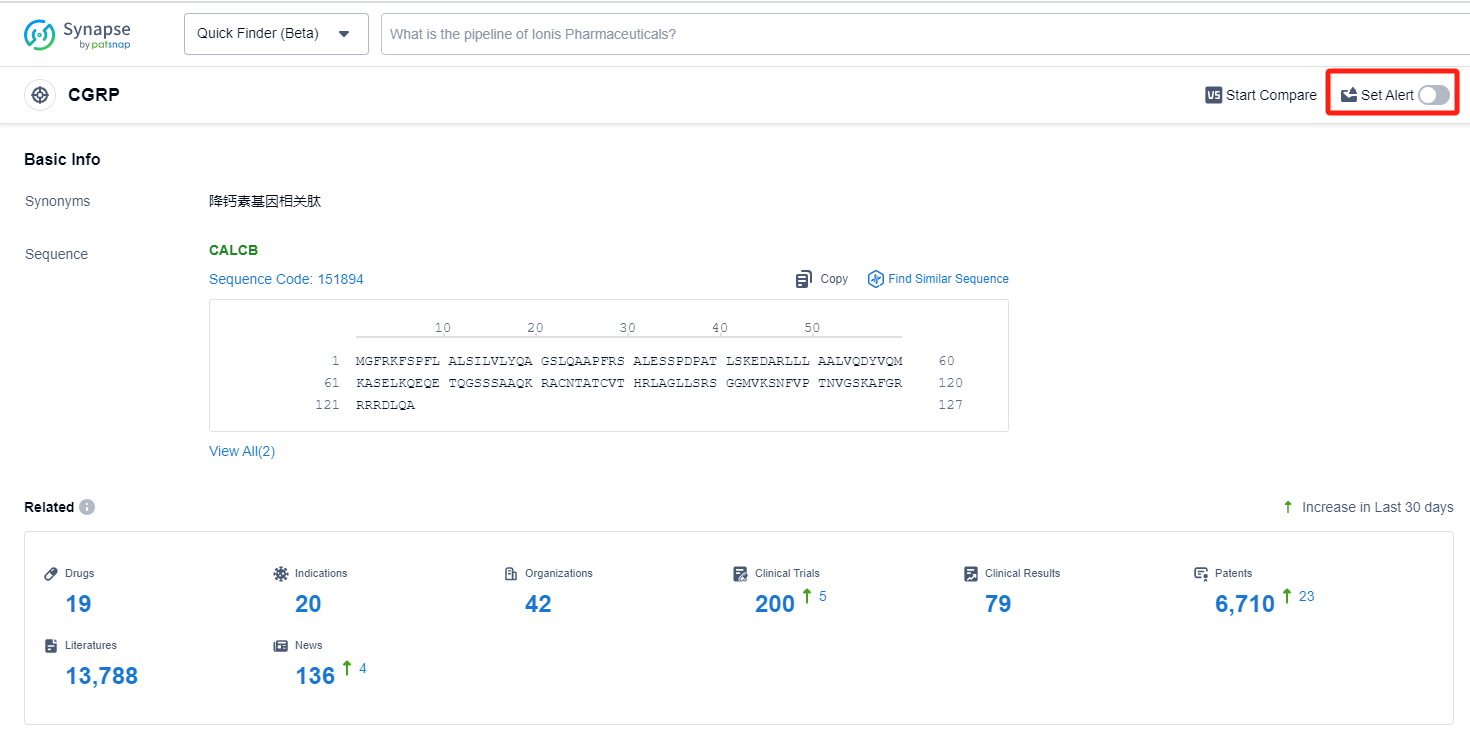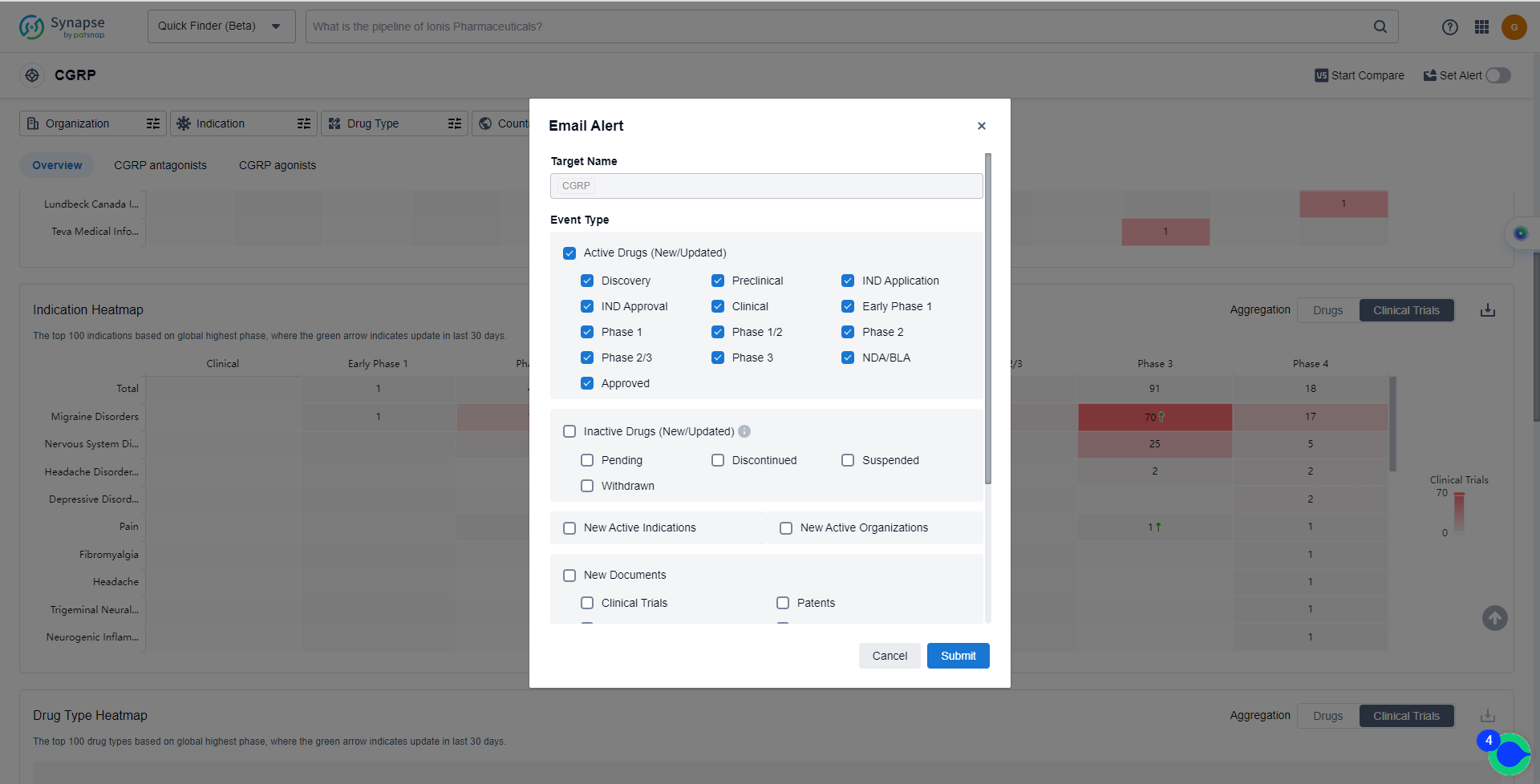What are CGRP antagonists and how do you quickly get the latest development progress?
CGRP, or calcitonin gene-related peptide, is a neuropeptide that plays a crucial role in the human body. It is primarily found in the nervous system and acts as a potent vasodilator, meaning it widens blood vessels. CGRP is involved in various physiological processes, including regulating blood flow, modulating pain transmission, and promoting neurogenic inflammation. Additionally, it has been implicated in migraine headaches, as elevated levels of CGRP have been observed during migraine attacks. Understanding the role of CGRP has led to the development of targeted therapies that aim to block its activity, providing potential relief for individuals suffering from migraines and other related conditions.
CGRP antagonists are a class of drugs that act as antagonists of the calcitonin gene-related peptide receptor (CGRPR). They are used for preventing episodic migraines. CGRP is a protein that is released around the brain. When released in excess, CGRP causes intense inflammation in the coverings of the brain (meninges). Excess CGRP release in the brain aggravates the pain of a migraine attack.
The analysis of the current competitive landscape for target CGRP reveals that Eli Lilly & Co., Lundbeck Foundation, Pfizer Inc., Teva Pharmaceutical Industries Ltd., and AbbVie, Inc. are the companies growing fastest in this field. These companies have made significant progress in the development of drugs targeting CGRP, with Eli Lilly & Co. leading in the Phase 1 stage and Pfizer Inc. and Teva Pharmaceutical Industries Ltd. advancing to the Phase 3 stage. The primary indication for these drugs is Migraine Disorders, indicating a breakthrough in the treatment of this condition. Monoclonal antibodies and Small molecule drugs are the drug types progressing most rapidly, with intense competition around the innovative drug. The United States, European Union, and China are actively involved in the development of drugs targeting CGRP, with China showing progress in the NDA/BLA and Preclinical stages. Overall, the future development of target CGRP holds promise for improved treatment options for migraine and other related disorders.
How do they work?
CGRP antagonists are a type of drug used in biomedicine to treat migraines. CGRP stands for calcitonin gene-related peptide, which is a neuropeptide involved in the transmission of pain signals. CGRP antagonists work by blocking the CGRP receptors, thereby reducing the release of CGRP and preventing its binding to its receptors.
By inhibiting CGRP, these antagonists help to alleviate migraine symptoms such as headache, nausea, and sensitivity to light and sound. They are specifically designed to target the CGRP pathway, which is believed to play a significant role in the development of migraines.
CGRP antagonists can be administered orally or through injection, depending on the specific drug formulation. They are typically used as a preventive treatment for migraines, meaning they are taken regularly to reduce the frequency and severity of migraine attacks.
It's important to note that CGRP antagonists are not suitable for everyone and should be prescribed by a healthcare professional. Common side effects may include injection site reactions, constipation, and muscle pain. As with any medication, it's crucial to follow the prescribed dosage and consult a healthcare provider for further guidance.
List of CGRP Antagonists
The currently marketed CGRP antagonists include:
- Zavegepant
- Atogepant
- Eptinezumab-JJMR
- Galcanezumab-gnlm
- Fremanezumab-VFRM
- IL-23/CGRP bispecific antibody(Eli Lilly & Co.)
- JS-010
- UB-313
- Calcitonin gene-related peptide(Danish Headache Center)
- TS-1903
For more information, please click on the image below.
What are CGRP antagonists used for?
CGRP antagonists are used as a preventive treatment for migraines For more information, please click on the image below to log in and search.
How to obtain the latest development progress of CGRP antagonists?
In the Synapse database, you can keep abreast of the latest research and development advances of CGRP antagonists anywhere and anytime, daily or weekly, through the "Set Alert" function. Click on the image below to embark on a brand new journey of drug discovery!








